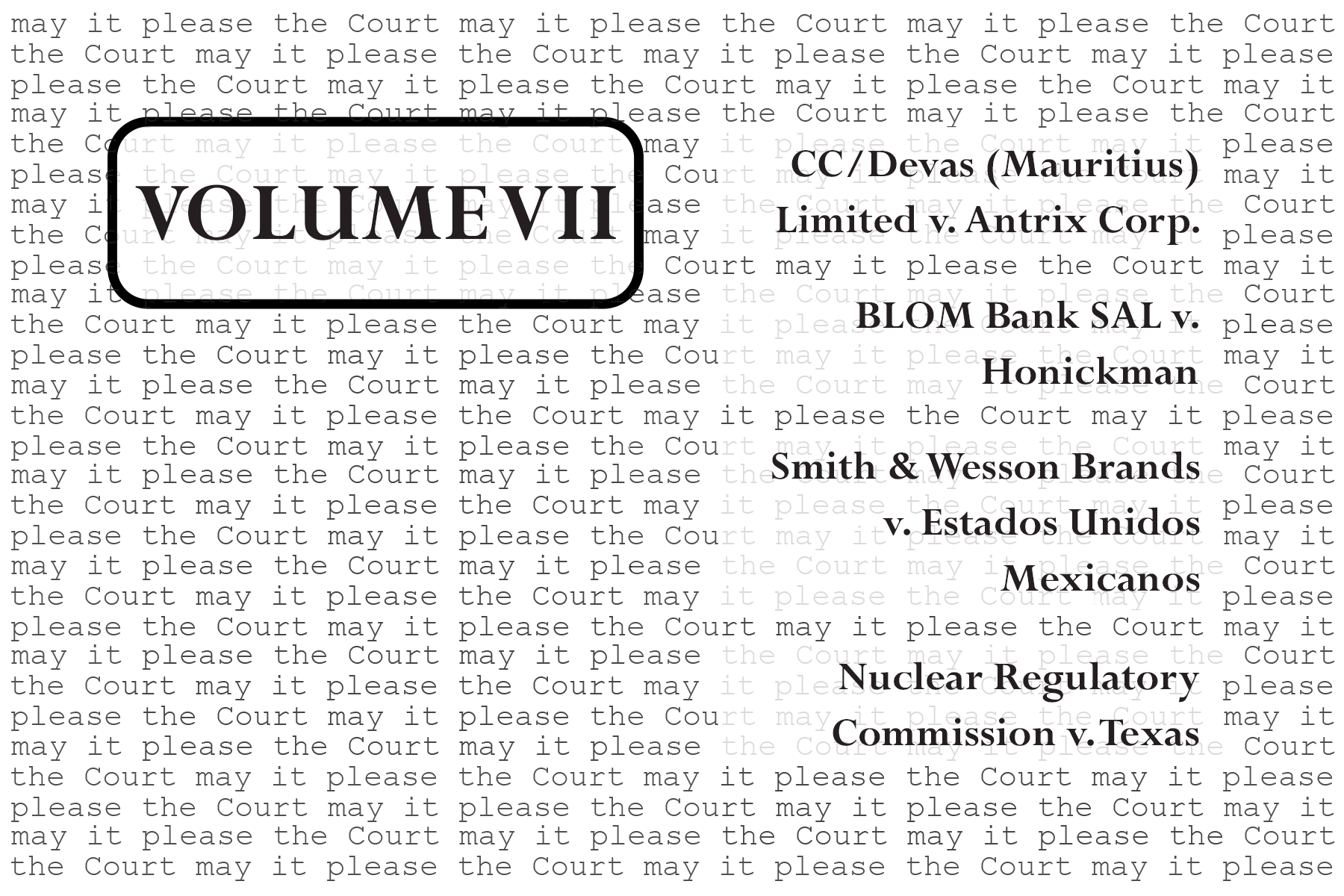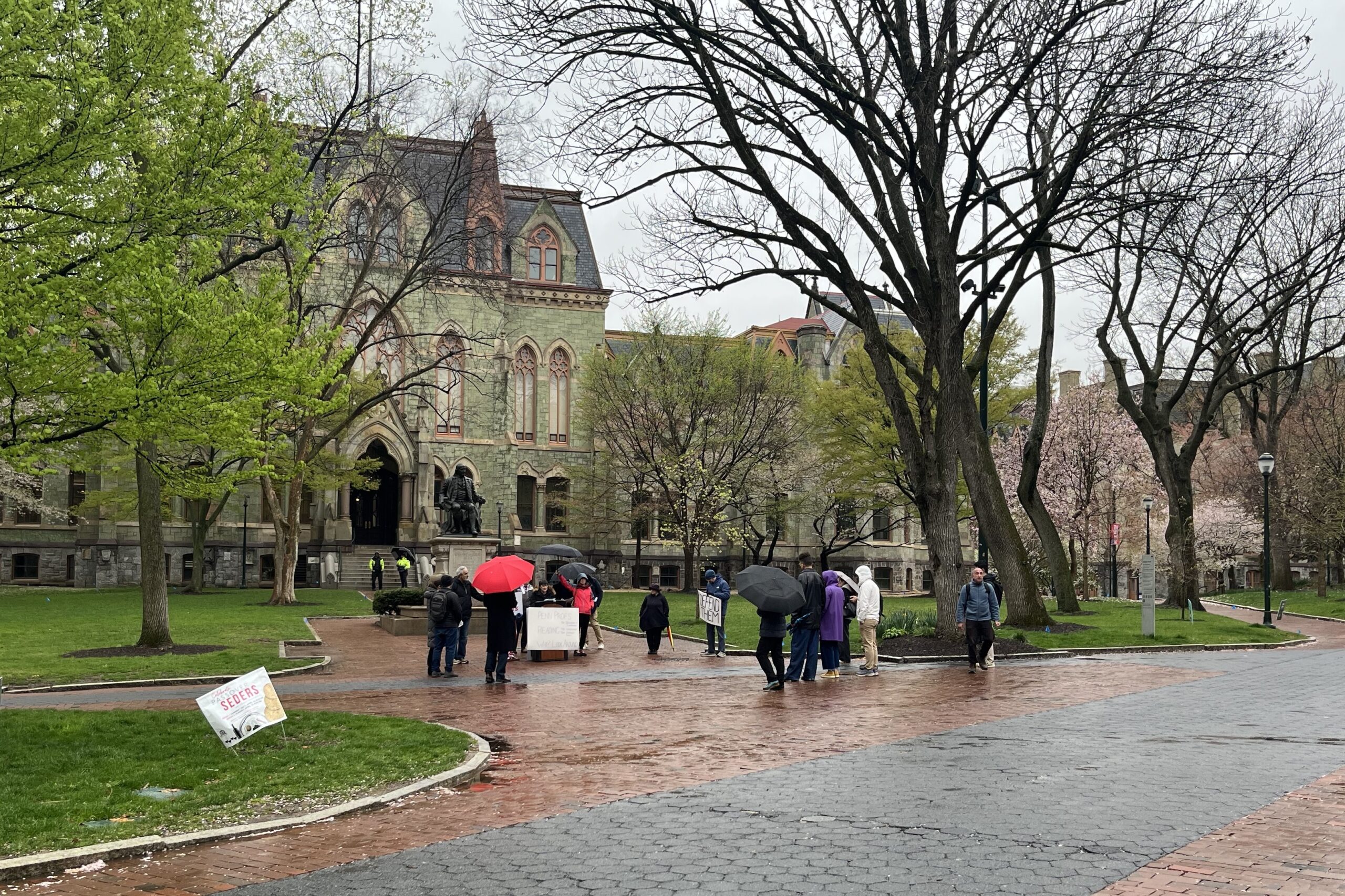Civil procedure, nuclear waste storage, and another Foreign Sovereign Immunities Act (FSIA) case
Photo Credit: Sarah Mester
By Sarah Mester
The U.S. Supreme Court heard eight cases during the February Sitting. This edition of May it please the Court covers the last four cases—including the second Foreign Sovereign Immunities Act (FSIA) case this term. Hungary v. Simon (Oyez) was the first one. The March Sitting started on March 24 and includes nine cases that will be covered in future editions. Meanwhile, opinions have continued to be released, with Bondi v. VanDerStok—an October Sitting case about the power of the Bureau of Alcohol, Tobacco, Firearms and Explosives (ATF) to regulate “ghost guns”—receiving some media attention. The Court ruled that an ATF rule that interpreted the Gun Control Act of 1968 to include the regulation of products that can be readily converted into firearms is not inconsistent with the act, meaning that the ATF has at least some power to regulate ghost guns.
Case Summaries
CC/Devas (Mauritius) Limited v. Antrix Corp. Ltd. (Arg: 3.3.2025) Oyez SCOTUSblog
About: Foreign Sovereign Immunities Act (FSIA) Arbitration Exception
Question: Under the Foreign Sovereign Immunities Act (FSIA), are foreign plaintiffs obligated to prove minimum commercial contact with the U.S. before a U.S. federal court may assert jurisdiction over the foreign states?
Explanation: Petitioner and respondent are both Indian companies that sued one another over a contractual disagreement. Devas petitioned the International Chamber of Commerce (ICC) and received an arbitration award and filed a federal case to confirm the award under the New York Convention—a UN treaty allowing countries that are party to the convention (like India and the U.S.) to bring suit to enforce the arbitration. FSIA, which governs when a foreign country can be sued in federal courts, has an arbitration exception. The Court is being asked whether the FSIA arbitration exception, which works in tandem with the New York Convention, requires that there be minimum commercial contact between the petitioner and the U.S. to bring suit.
Oral Argument: It was noted during oral argument that both sides agreed that the lower court erred in ruling that there must be minimum commercial contact. Discussion focused not on the question presented, but on issues not briefed such as whether a foreign state is considered a person under the 5th Amendment’s Due Process Clause. During argument, it was made clear that it is most likely that the question presented will be answered in the negative and that the case will be remanded for further fact finding and briefing.
BLOM Bank SAL v. Honickman (Arg: 3.3.2025) Oyez SCOTUSblog
About: Civil Procedure
Question: Can a case dismissed under the Federal Rule of Civil Procedure 60(b)(6)’s be reopened to amend the complaint under the broad Rule 15(a)?
Explanation: Rule 60(b)(6) provides several specific reasons a judgement can be reopened as well as a general requirement that a case could be reopened for “extraordinary circumstances”. Rule 15(a) governs when a plaintiff can amend a complaint and, according to SCOTUSblog, “there is an almost overwhelming presumption that the court should permit the plaintiff to amend the complaint.” In this case, the plaintiff wants to reopen their dismissed case to amend the complaint, but the request was rejected due to the lack of ordinary or extraordinary circumstances. The Court is being asked whether the strict Rule 60(b)(6) precludes reopening the case or whether that strict standard is tempered by the liberal allowance of Rule 15(a) to amend a complaint.
Smith & Wesson Brands v. Estados Unidos Mexicanos (Arg: 3.4.2025) Oyez SCOTUSblog
About: Protection of Lawful Commerce in Arms Act (PLCAA)
Question: Can U.S. gun manufacturers be held liable for violence in Mexico under theories of proximate causation and aiding and abetting, based on their domestic production and sale of firearms that are later trafficked to Mexican cartels?
Explanation: Mexico alleges that the practices of U.S. gun manufacturers facilitated illegal gun trafficking to Mexican drug cartels by doing business with gun distributors that sell large numbers of guns to cartel front buyers. There is disagreement over the extent to which Smith & Weston knows which gun distributors engage in this practice. The Protection of Lawful Commerce in Arms Act (PLCAA) prohibits certain lawsuits against gun manufacturers, such as liability for when their gun is used in a crime. However, it has an exception for knowingly violating gun sale laws. The Court is being asked whether the situation described by Mexico falls within that exception or whether Mexico has not provided sufficient evidence of Smith & Weston knowingly aiding and abetting the illegal sale of firearms to the cartels.
Nuclear Regulatory Commission v. Texas (Arg: 3.5.2025) Oyez
About: Power of a Federal Agency
Question: Whether the Hobbs Act, which authorizes a “party aggrieved” by an agency’s “final order” to petition for review in a court of appeals, allows nonparties to obtain review of claims asserting that an agency order exceeds the agency’s statutory authority. Do federal nuclear laws allow the Nuclear Regulatory Commission to license private companies to store spent nuclear fuel at off-reactor sites?
Explanation: A private company applied to build a nuclear waste storage facility in Andrews County, Texas. It was approved by the Nuclear Regulatory Commission (a federal agency) despite opposition from Texas’s governor and a state law prohibiting such storage. Texas was not involved with the decision. The Court is being asked whether Texas as a nonparty can challenge the ruling of the Nuclear Regulatory Commission under the Hobbs Act and also whether the NCR has the authority to license private companies to store nuclear waste.
Oral Argument Excerpts
From Smith & Wesson Brands v. Estados Unidos Mexicanos (11:24):
Francisco [advocate for the petitioners]: “I think it goes back to the Court’s 1876 decision in the St. Paul Railway case, where you made clear that if there is a sufficient and independent cause –”
Gorsuch: “It wasn’t me.” (Laughter)
Francisco: “Your Honor, I — I — I think of the Court as a collective body that operates across time.” (Laughter) “And it made clear — it made –”
Sotomayer: “Justice Gorsuch doesn’t believe that.” (Laughter)
Gorsuch: “Yes, I do.”
Justice Sotomayer is likely referring to Justice Gorsuch’s philosophy about stare decisis—a “doctrine that courts will adhere to precedent in making their decisions” (LII). Gorsuch is largely considered to be an originalist, a judicial philosophy that de-emphasizes the authority of precedent and argues that the text of a law should be interpreted as it would at the time the law was written. Catherine Stetson, advocate for the respondent, referenced the same case later on (47:51):
Stetson: “Mr. Francisco mentioned that 1876 case that Justice Gorsuch did not write about Milwaukee railroad.”
Touché. From Nuclear Regulatory Commission v. Texas, advocate for the respondents Aaron Nielson cited one of Justice Gorsuch’s cases from his time on the United States Court of Appeals for the Tenth Circuit (2006-2017)(1:17:10):
Nielson: “Correct, Your Honor. And I would also — again, this is back on the Tenth Circuit days, you wrote a decision in In re Wolseley –”
Gorsuch: “Oh, gosh.”
Nielsen: “–where the court — where — I thought it was a wonderful opinion.” (Laughter) “And the court explained –”
Gorsuch: “I wish I could remember it.” (Laughter)
I sympathize with Justice Gorsuch here. Have you ever tried reading your own old writing? It is nearly as disturbing as hearing your own voice on video. It is always worse than you remember, if you remember it at all. If you do not remember it, you wonder how you possibly knew so much about this random topic to write a whole paper about it.
Sarah Mester is a senior in the College studying Political Science and Classics from San Francisco, CA. She’s the News Editor for The Pennsylvania Post. Her email is smester@sas.upenn.edu.




